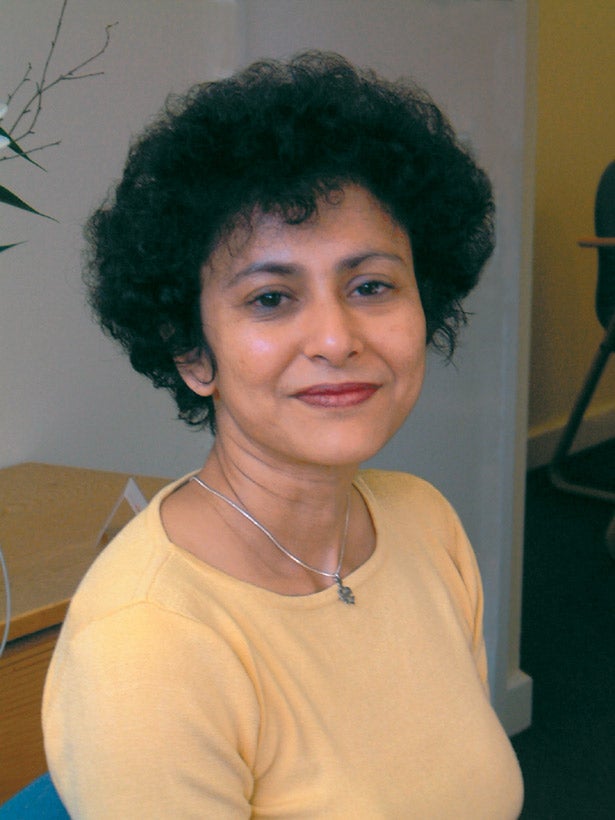Amnesty International still fights torture, arbitrary detention, and unfair trials, says Secretary General Irene Khan LL.M. ’79, but now it’s also taking on hunger, illiteracy, and discrimination.
According to Khan, it doesn’t make sense to discuss political and civil rights in developing countries without looking at economic, social, and cultural rights. How people live in villages is just as important as how they live in prisons, she says. Khan says this wider focus reflects the widening interest of today’s Amnesty International: The human rights organization is made up of 1 million members from 140 countries.
It also reflects Khan’s interests. Hired in August 2001, Khan is the first person from Asia (she was born in Dhaka, Bangladesh), the first woman, and the first Muslim to head the organization. She wants to strengthen Amnesty International in developing countries and further emphasize gender issues. Next year, the organization will start a global campaign combating violence against women.
During her first year, Khan and Amnesty International cited “a backlash against human rights” in the name of the war on terrorism and criticized the United States for ignoring abuses at home and abroad. Governments and citizens now seem to believe that there is a dichotomy between human rights and security, according to Khan. “We must turn the debate about security on its head,” she writes in an Amnesty report. “Human security comes only with human rights and the rule of law. Human rights are the basis for creating strong and accountable states without which there can be no political stability or social progress.”
Amnesty International has also been working to influence the corporate sector. This year, Khan became Amnesty’s first secretary general to attend the World Economic Forum, where she called for corporate accountability in human rights. Forum participants “are wielding an enormous amount of power in a globalized economy, and with power comes responsibility,” she said.
Before coming to Amnesty, Khan worked for more than 20 years at the UN High Commission for Refugees, where she dealt with governments and senior officials but also interviewed thousands of refugees.
She says growing up in a privileged family in a poor country in the midst of a civil war shaped her consciousness of human rights and her desire to help displaced people. Although she herself was never a refugee (she left Bangladesh as a teenager for school in Northern Ireland), she saw people uprooted and run out of their homes, and saw the poor deprived of basic rights.
From a very young age, Khan knew she wanted to study law. And she recalls Harvard Law School as playing a pivotal role in her decision to pursue a career in human rights. “I was coming from the UK, where law is taught within a very narrow field,” she said. “It prepared you to be a barrister or a solicitor.” At Harvard, she loved the academic openness: It taught her to think about the law internationally and made her realize she could use it to change the world.
Some of the people who have changed her are the refugees and the victims of violence she’s encountered. “It’s been humbling and inspiring to meet people who have suffered so much and yet still have courage and hope,” she said. This year during a trip to Israel and Gaza, she met a man who’d lost his daughter to a suicide bomber and yet was campaigning for peace and human rights in Israel. “I could have made my grief a tool for revenge,” he said, “but I have decided to make it a platform for change.”
